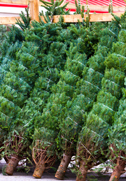608-224-5012
Meet the Secretary

Ben Brancel was appointed Secretary of Agriculture, Trade and Consumer Protection by Gov. Scott Walker, beginning with the governor’s term in January 2011. Secretary Brancel was born and raised in Marquette County, Wisconsin. After managing a dairy operation for 22 years, Brancel now raises registered Angus and Hereford beef cattle.
Read more






 The Bureau of Consumer Protection accepts complaints relating to a variety of consumer matters - including, but not limited to false advertising, home improvement practices, landlord-tenant practices, motor vehicle repairs, telecommunications, cable/satellite TV, telemarketing, and unfair business practices.
The Bureau of Consumer Protection accepts complaints relating to a variety of consumer matters - including, but not limited to false advertising, home improvement practices, landlord-tenant practices, motor vehicle repairs, telecommunications, cable/satellite TV, telemarketing, and unfair business practices. The Wisconsin No Call List protects consumers from unwanted telemarketing calls. You must register your landline and cell phone numbers every two years to stay on the list. You can register anytime online at
The Wisconsin No Call List protects consumers from unwanted telemarketing calls. You must register your landline and cell phone numbers every two years to stay on the list. You can register anytime online at  Sign up to receive consumer alerts by e-mail or text message. It only takes a minute to register your email or phone number. This is one way the Bureau of Consumer Protection provides consumers and businesses with the information they need to protect themselves. To learn more or file a complaint, use the toll-free hotline at 1-800-422-7128 or
Sign up to receive consumer alerts by e-mail or text message. It only takes a minute to register your email or phone number. This is one way the Bureau of Consumer Protection provides consumers and businesses with the information they need to protect themselves. To learn more or file a complaint, use the toll-free hotline at 1-800-422-7128 or 





